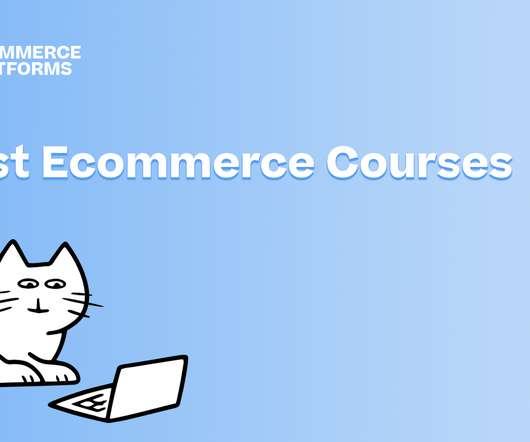The Best Ecommerce Courses for Business Owners
Ecommerce Platforms
OCTOBER 24, 2022
Ecommerce online courses can teach you everything you need to know to boost your chances of making your business a success. They provide a behind-the-scenes look at how to use some of the most common ecommerce technology, as well as offering tips on things like: Store design and improving user experience for extra sales.












Let's personalize your content